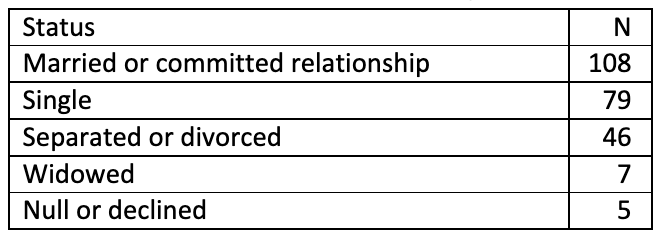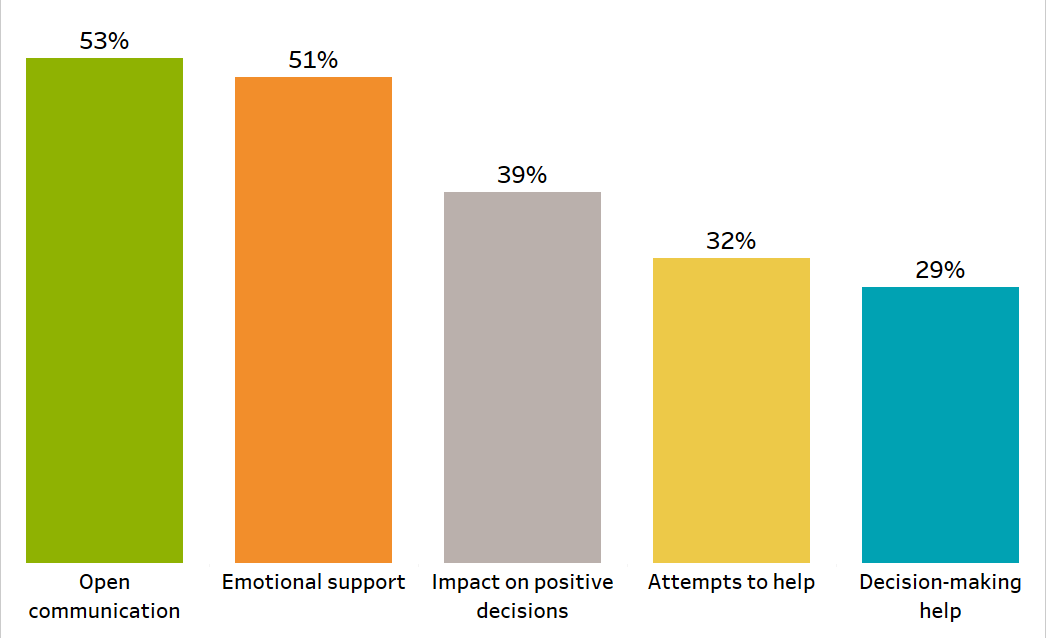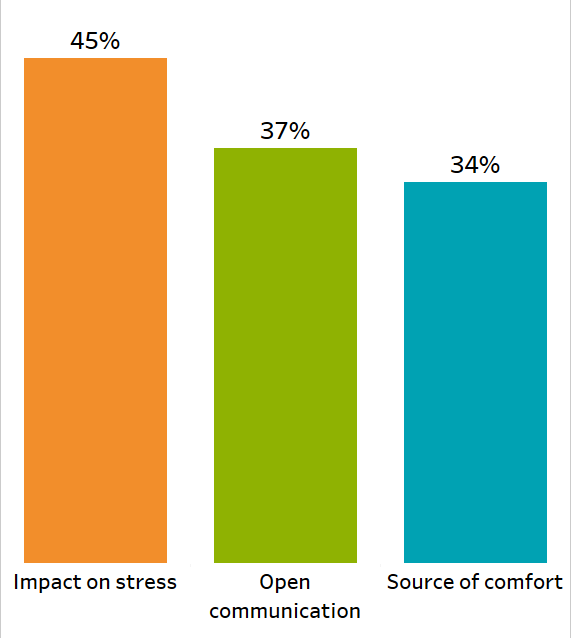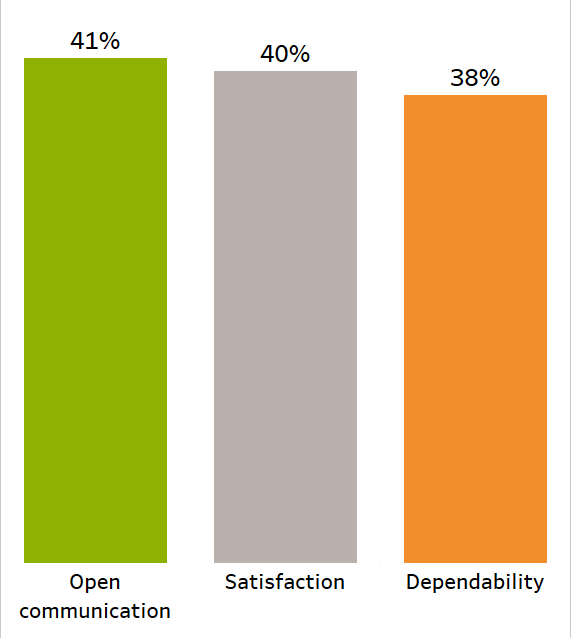Data drop: Relationship impacts among persons with addiction

July 11, 2022
Since 2016, Face It TOGETHER has gathered information about members, including the impact of coaching on relationships with family, significant others and peers through the collection of output- and outcome-related data. This analysis includes 245 members with addiction coached from Jan. 1, 2021 to May 4, 2022 who completed at least one session and at least one follow-up outcomes-based assessment. At intake, most of those members (89%) expressed concerns related to their relationships.
There was a near even distribution of genders among coaching members (women: 49%, men: 44%). Members were the following ages: <25: 7%; 25-30: 13%; 31-40: 29%; 41-50: 22%; >50: 21%. Almost half of members included in this analysis (44.1%) reported being married or in a committed relationships when they first started coaching. Most (70%) reported having a confidante they trusted – most often a significant other.

Face It TOGETHER doesn’t focus on sobriety, which is the typical measurement for addiction wellness. Instead, we consider our members’ social, personal and cultural capital using our Recovery Capital Index (RCI) and the risk factors that may impede wellness through our Risk Assessment (RA). Family, significant others and peer relationships are a few of the many areas that becomes the focus of peer coaching sessions.
Of the 245 individuals part of this analysis, most (76%) scored below 75 out of 100 possible points at their intake for family support-related metrics. After at least 30 days of peer coaching, more than half (52%) improved scores in metrics related to family support. These family support metrics, collected at baseline and every 30 days of engagement, focus on impacts to open communication, emotional support, impact on positive decisions, attempts to help and decision-making help.

Mikaela, from Wisconsin, participated in virtual peer coaching with one of our coaches, Kattie, who is based in Sioux Falls, SD.
“I’ve always been a very closed off person. Kattie has taught me not to do that. She’ll say, ‘No one is going to benefit from you being in this position.’ It’s been a huge eye opener. Every relationship – from my parents to my customers – was a lie. I had to start over. Now, I feel like I can actually be me. I don’t have to lie or cover up who I am.”
Of the 245 members, most (77%) scored below a score of 75 out of 100 possible points at their intake for significant other support-related metrics. After at least 30 days of peer coaching, more than half (48%) improved scores in metrics related to significant other support. These significant other support metrics, collected at baseline and every 30 days of engagement, focus on open communication, being a source of comfort and decreasing stress.

Additionally, 89% scored below a score of 75 out of 100 possible points at their intake for social support-related metrics. After at least 30 days of peer coaching, almost half (52%) improved scores in metrics related to social support. These social support metrics, collected at baseline and every 30 days of engagement, focus on satisfaction, dependability and open communication.

Individuals who participate in peer coaching at Face It TOGETHER are more likely than not to have concerns related to their relationships with others – their families, significant others and peers. Isolation, while struggling with alcohol and other drugs, is a common risk factor. Repairing and/or developing relationships takes time and significant work. As evidenced by our data, about half of members make positive changes in these areas throughout their coaching engagement.
This knowledge discovery process provides valuable information for Face It TOGETHER. We use insights like those highlighted here to continually improve our peer coaching program, including the identification of training needs for coaches and additional programming for members. Our goal is to set members up for success in their wellness in whatever ways are most important to them.
